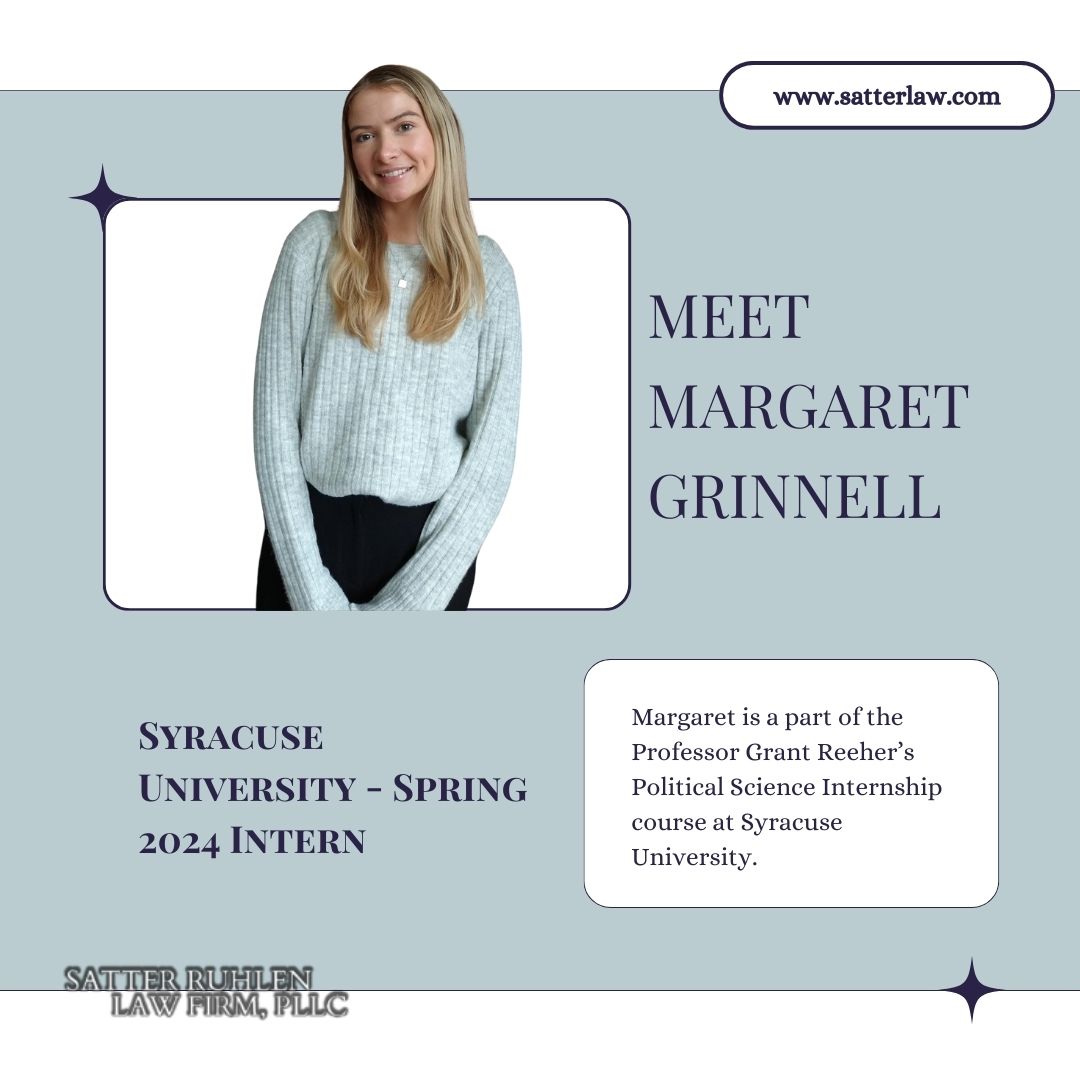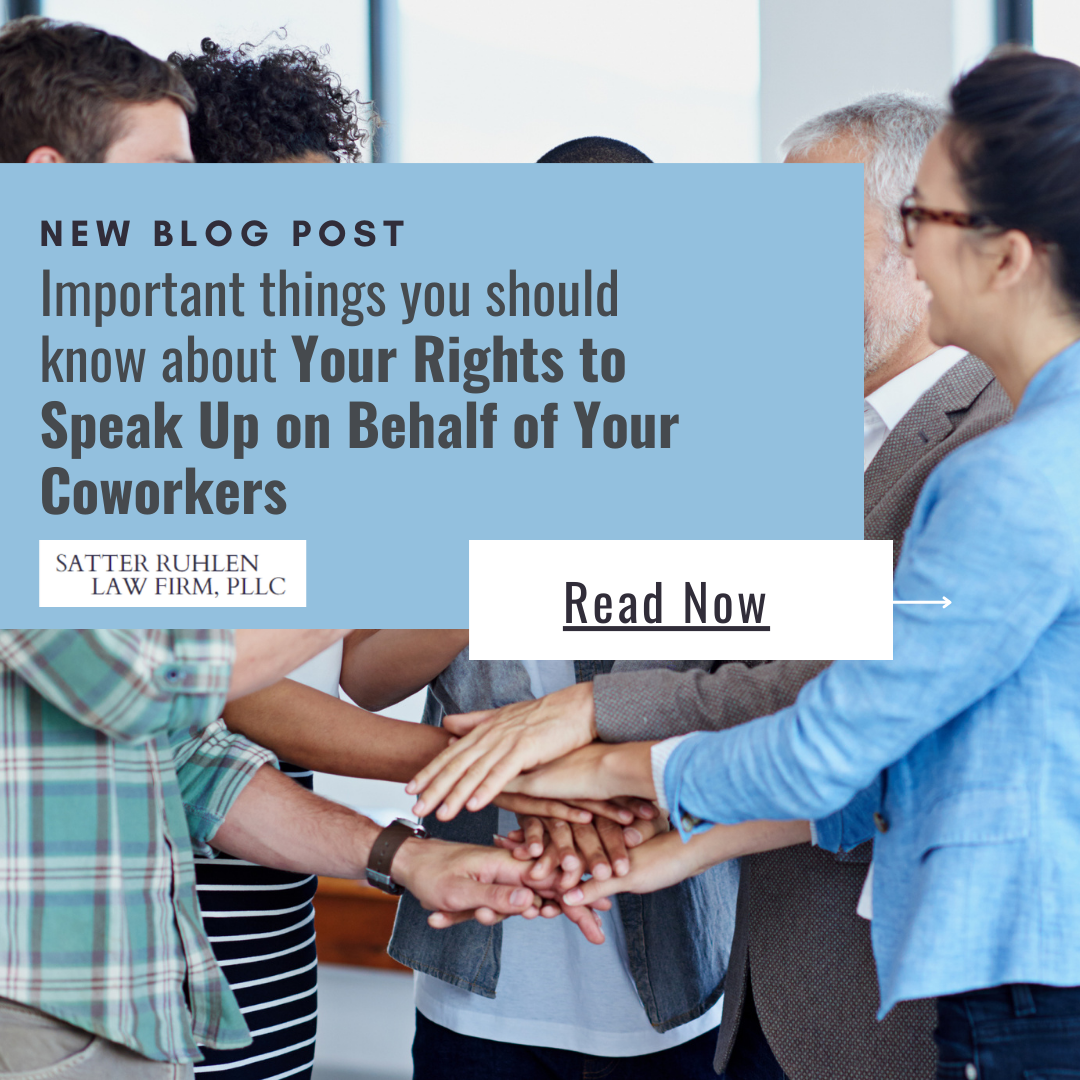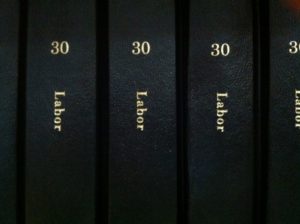
Meet our Spring 2024 intern, Margaret Grinnell, who is a part of Professor Grant Reeher’s Political Science Internship course at Syracuse University. Margaret is in her final semester at Syracuse, studying International Relations, and is drawn to areas of civil law.
Margaret has had the opportunity to volunteer for the Central Virginia Legal Aid Society in her hometown of Charlottesville, Virginia. In this role, she completed paralegal work in the family law division, helping to support attorneys provide free legal assistance to low-income clients. At Syracuse, she completed a research assistantship with the Muslim Family Law Index Project, assessing legal reform in fifty-three countries. Through these experiences, Margaret gained a passion for legal accessibility and research.
At Satter Ruhlen Law Firm, Margaret is learning about the continuing evolution of labor law legislation, and is developing an interest in advocating for employee rights. She has observed depositions, interacted with clients, and participated in discussions of case law. Different from her previous experiences, at Satter Ruhlen, Margaret has gained a new perspective in the legal field, researching and learning about how employees and unions are protected under the law.
Margaret says her experience at Satter Ruhlen has given her clarity and confidence in her plans to move forward with a career in law. She notes, “Observing the diverse caseload at the firm has allowed me to understand different legal procedures which has enriched my legal understanding.”
We’ve certainly enjoyed having Margaret with us this semester, and we’re excited to watch her pursue a legal career!



